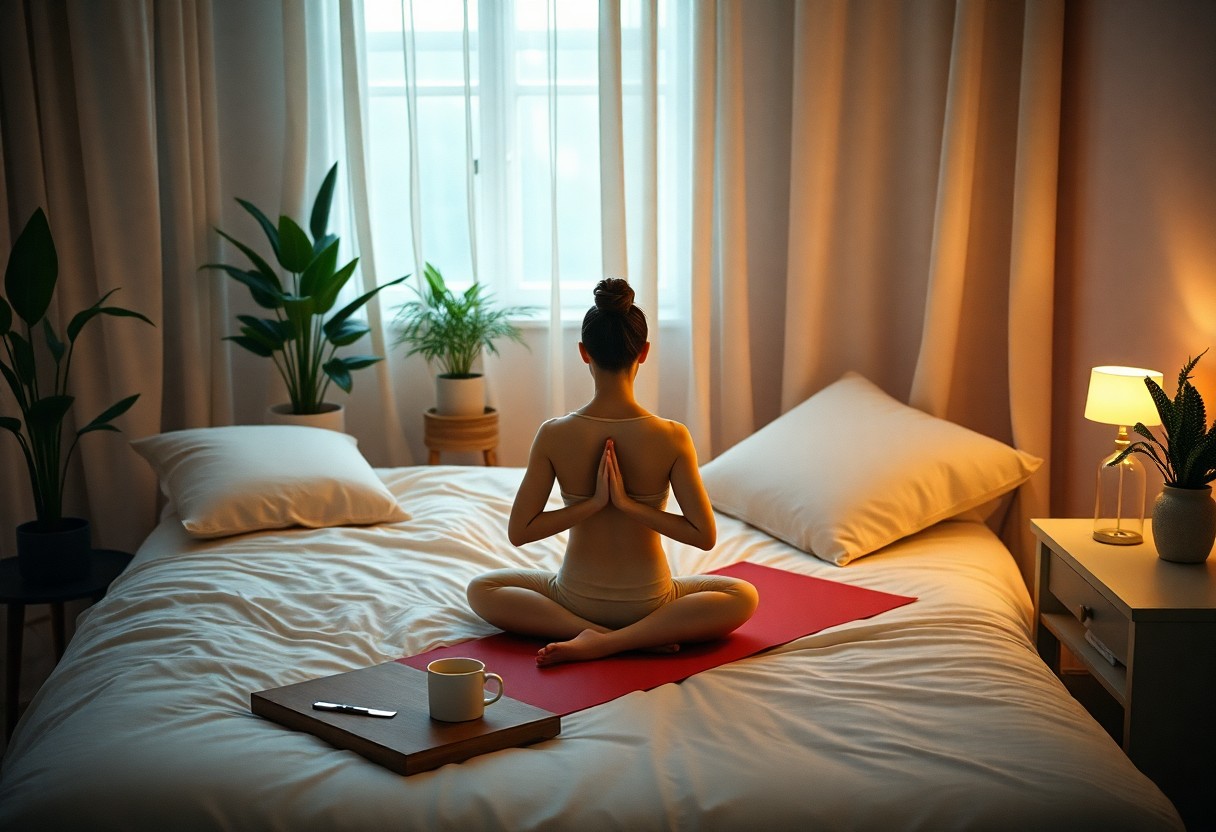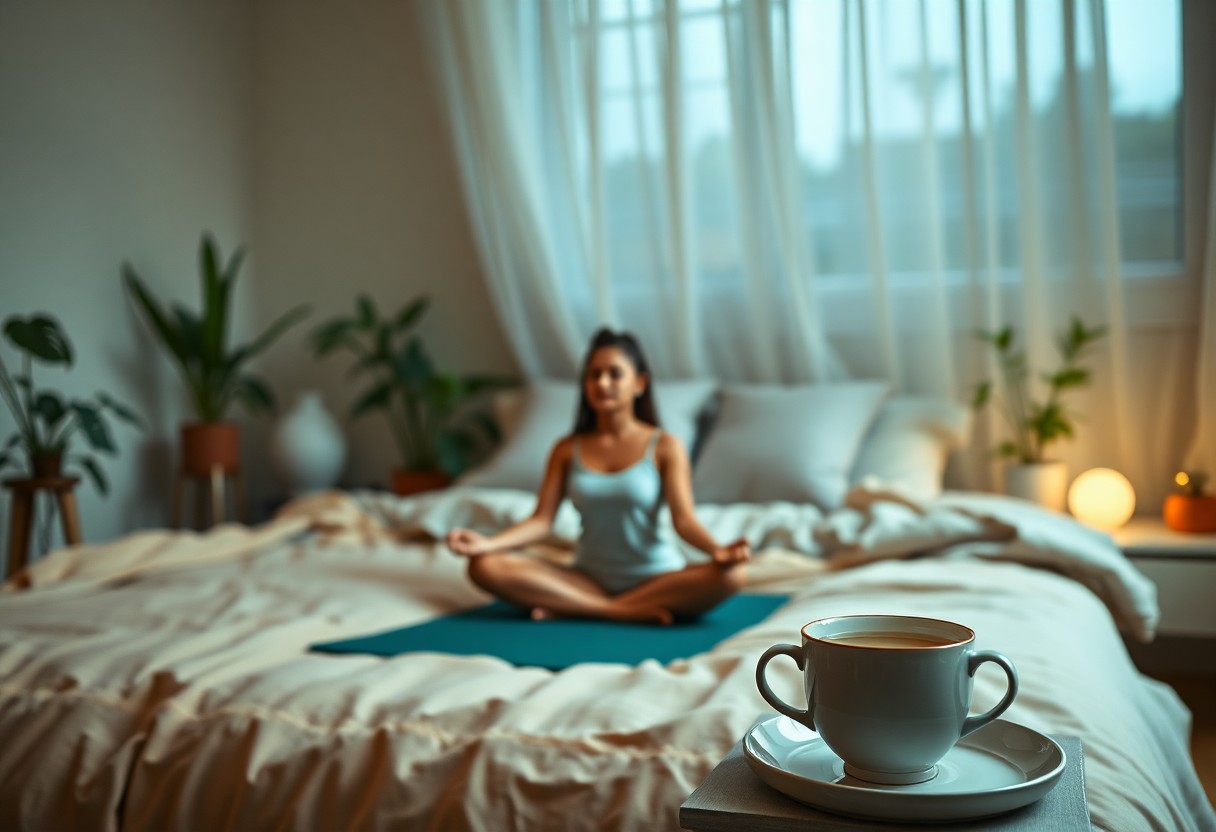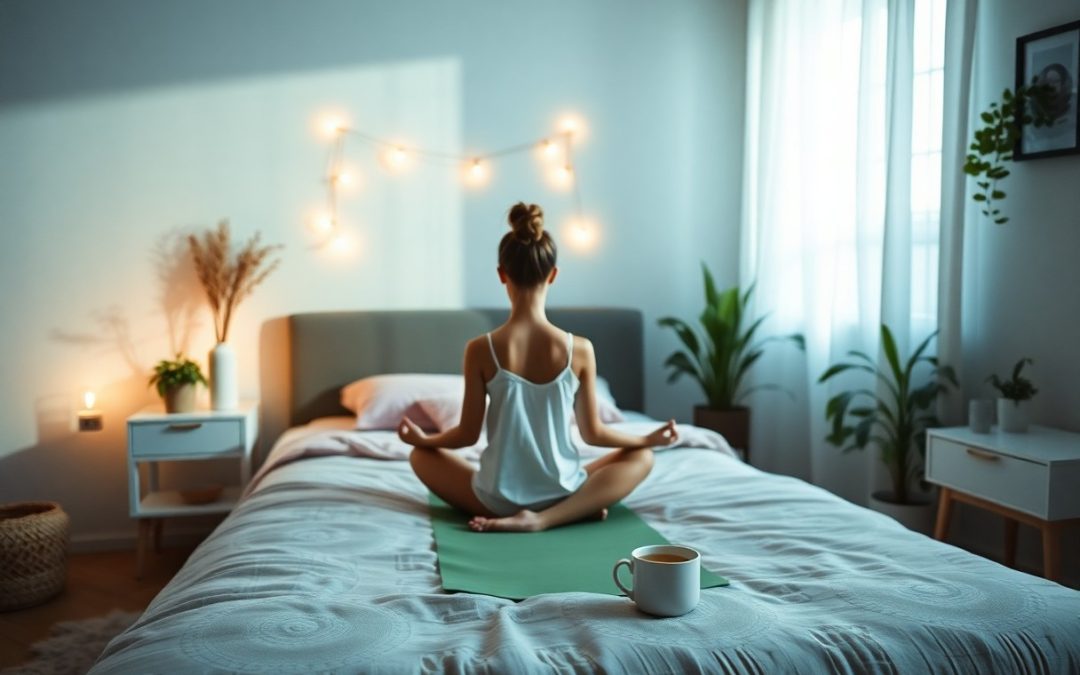Many people struggle with racing thoughts that interfere with their sleep, impacting both mental and physical well-being. If you find it challenging to calm your mind at bedtime, you’re not alone. In this post, we’ll explore practical, evidence-based strategies that you can implement to help quiet your thoughts and enhance your sleep quality. From establishing a relaxing bedtime routine to utilizing breathing techniques, these proven tips will support your journey towards better rest and overall health.
Understanding the Racing Mind
Before you can quiet your racing mind for better sleep, it’s imperative to understand what triggers such thoughts. Many people experience a surge of mental activity at bedtime as their brains process the day’s events, worries, and new information. This mental noise can prevent you from achieving a restful night, making it harder to fall asleep or stay asleep.
Common Causes of Racing Thoughts
For those struggling to calm their minds at night, anxiety, stress, and life changes are often at the forefront. Your brain may be busy replaying the day’s events, anticipating tomorrow’s challenges, or even processing ongoing personal issues. This habit can escalate, leading to increased difficulty in winding down when bedtime arrives.
The Impact on Sleep Quality
One significant consequence of a racing mind is its detrimental effect on sleep quality. If your thoughts keep you awake, the chances of experiencing restorative sleep diminish, which can lead to various issues like fatigue, irritability, and even decreased cognitive function often linked to sleep deprivation.
Considering that studies indicate a strong connection between mental activity and sleep disturbances, it’s vital to address these racing thoughts. Persistent racing thoughts can lead to insomnia, with over 50% of individuals experiencing insomnia at some point in their lives. By understanding what triggers your racing mind, you can adopt effective strategies to promote better sleep hygiene and overall well-being.
Pre-Bedtime Techniques
If you find your mind racing at night, incorporating effective pre-bedtime techniques can significantly enhance your sleep quality. Creating a peaceful atmosphere and engaging in calming activities can help signal to your brain that it’s time to unwind, making it easier to let go of the day’s stresses and prepare for restorative sleep.
Establishing a Relaxation Routine
Among the most effective strategies for quieting a racing mind is establishing a consistent relaxation routine. This might include activities such as reading, meditation, or gentle yoga, all of which can help you transition from the day’s hustle to a more peaceful mindset before bed. Consistency is key, as your body will begin to associate these calming practices with sleep.
The Role of Gratitude Journaling
For those looking to transform nighttime anxiety into a sense of peace, gratitude journaling can be especially beneficial. Taking a few minutes each night to write down things you’re thankful for can shift your focus from worries to positivity, promoting a more relaxed state of mind before sleep.
Considering that the positive impacts of gratitude practice extend beyond just mood, it can also significantly influence sleep quality. By reflecting on aspects of your life that bring joy, you create a calming mental environment that discourages racing thoughts. Research shows that individuals who regularly engage in gratitude journaling experience lower levels of stress and improved emotional well-being, which can ultimately lead to enhanced sleep quality and overall health.
Breathing and Relaxation Exercises
Now, incorporating breathing and relaxation exercises into your nightly routine can significantly enhance your sleep quality. These techniques help slow your heart rate and quiet your mind, making it easier for you to drift off. Giving yourself permission to relax and engage in mindful practices will prepare your body for restful sleep, addressing the racing thoughts that often disrupt your slumber.
4-7-8 Breathing Technique
Against a backdrop of daily stress, the 4-7-8 breathing technique offers a simple way to calm your mind. By inhaling for four counts, holding for seven, and exhaling for eight, you can effectively lower your heart rate and relieve anxiety. This practice encourages deeper, more restful breathing, which can set the stage for a more peaceful night’s sleep.
Progressive Muscle Relaxation
Exercises like Progressive Muscle Relaxation (PMR) allow you to engage deeply with your body while quieting your mind. You systematically tense and then relax each muscle group, starting from your toes and working your way up to your head. This method not only diverts your focus from racing thoughts but can also significantly reduce physical tension accumulated throughout the day.
At the conclusion of your PMR session, you may find yourself feeling more centered and ready for sleep. This exercise fosters an awareness of your body, prompting you to notice areas of tension you’ve been holding without realizing it. By incorporating PMR into your nightly routine, you disrupt the pattern of anxious thoughts and create an environment conducive to deep, restorative sleep, aligning with recommendations from sleep experts who emphasize the importance of relaxation for improved sleep health.
Managing Waking Moments
Despite your best efforts, waking up during the night can disrupt your sleep quality and leave you feeling groggy the next day. It’s necessary to address those moments of wakefulness proactively. Creating a calming environment and employing relaxation techniques can help you ease back into slumber. Consider designating a relaxation space in your home where you can retreat during wakeful periods to read or practice gentle stretches before returning to bed.
Strategies for Insomnia
Behind many cases of insomnia lie various triggers, including stress, anxiety, or poor sleep habits. By identifying your specific challenges, you can implement targeted strategies, such as establishing a bedtime routine or practicing mindfulness, to foster improved sleep. Behavioral techniques, such as poor sleep habit modification and cognitive restructuring, can significantly enhance your sleep quality and overall well-being.
When to Seek Professional Help
Managing sleep disturbances can be daunting, but knowing when to seek professional assistance can empower you in your journey to better sleep. If you find your nighttime awakenings persist despite self-help efforts, or experience other symptoms of insomnia, it may be time to consult a healthcare provider. A sleep specialist can offer tailored guidance and explore underlying health issues that may contribute to your sleeplessness.
Hence, if sleepless nights become frequent or your sleep is significantly impacted, don’t hesitate to reach out to a healthcare professional. Untreated sleep problems can lead to serious health consequences. Research suggests that ongoing insomnia can negatively affect your mood and increase the risk of chronic conditions such as depression and heart disease. By seeking help, you can access effective treatment options tailored to your unique needs, significantly improving your sleep quality and overall health experience.

Lifestyle Adjustments for Better Sleep
Keep in mind that making lifestyle adjustments can significantly enhance your sleep quality. Simple changes, such as improving your sleep environment, adjusting your evening routine, and incorporating relaxation techniques, can help calm your mind and body. Integrating these practices into your daily life will create a conducive atmosphere for restful sleep, ensuring you wake up feeling refreshed and rejuvenated.
Importance of a Consistent Sleep Schedule
Around the same time every night, make it a priority to go to bed and wake up. Consistency helps regulate your body’s internal clock, making it easier for you to fall asleep and wake up naturally. Establishing a routine not only enhances sleep quality but also can improve overall health and daytime alertness.
Reducing Digital Distractions
About cutting back on screen time before bed can also aid in achieving better sleep. The blue light emitted by devices like smartphones and laptops can interfere with melatonin production, making it harder to fall asleep. Limiting screen usage at least one hour before bedtime allows your mind to unwind and prepares your body for a restful night.
In fact, research shows that the apps, websites, and content on digital devices are engineered to keep your brain engaged, which can hinder your ability to transition into sleep mode. Establishing a technology-free zone in your bedroom and opting for calming activities like reading or meditating can promote mental relaxation. By reducing these digital distractions, you can create a calming nighttime environment that fosters improved sleep and overall health.

Additional Resources and Tools
For those looking to enhance their sleep experience and quiet a racing mind, various resources and tools are available. Exploring techniques like mindfulness, meditation, and breathing exercises can be beneficial. Additionally, consider consulting a sleep specialist if trouble sleeping persists, as expert guidance can significantly improve your overall sleep quality and mental well-being.
Recommended Apps and Books
Along your journey to better sleep, several apps and books can provide valuable insights and techniques. Apps focused on meditation, sleep tracking, and relaxing soundscapes can help create a calming bedtime routine, while books that explore sleep science and mindfulness offer deeper understanding and actionable strategies to improve your sleep hygiene.
Sleep Hygiene Practices
Behind every good night’s sleep is the practice of sleep hygiene. This involves creating an environment conducive to restful sleep by maintaining a consistent sleep schedule, limiting screen time before bed, and incorporating relaxing activities into your evening routine. Simple changes, such as keeping your bedroom dark and cool, can also enhance your sleep experience, making it easier to quiet your mind.
Hygiene practices are vital when it comes to optimizing your sleep quality. Evidence suggests that maintaining a schedule where you go to bed and wake up at the same time daily can significantly enhance your sleep quality. Eliminating caffeine and alcohol before bed, along with creating a dedicated sleep environment that minimizes noise and light, will also help your mind unwind. Consistent practice of these habits can lead to a more restorative sleep, thus improving your mental and physical health.
Proven Tips to Quiet Your Mind and Improve Sleep Quality
Ultimately, by incorporating strategies like limiting device use, scheduling worry time, and practicing relaxation techniques, you can effectively quiet your mind and enhance your sleep quality. Emphasizing gratitude and maintaining a consistent sleep schedule will further support your journey toward better rest. If restless nights persist, seeking guidance from a healthcare provider can provide additional support for your sleep and overall health.


